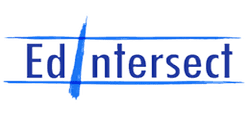Disability + Inclusion
EdIntersect works closely with government ministries, leading development organizations, and donors to understand their goals for inclusion, disability, and gender. EdIntersect’s research and engagement approaches bring an intersectional lens to collaborate with school systems and school communities, and takes into account the interactions between schools and homes, teachers and parents, and teachers and students. EdIntersect’s understanding of the nuanced school/home environment informs and enhances gender and inclusion planning, teacher training, coaching, and allows harmony across project outcome areas. The EdIntersect team combines a depth of knowledge in the education sector with practical, current inclusion expertise in the U.S. and globally, and an awareness of emerging donor policy and directives on inclusive education.
EdIntersect’s contributions to inclusion work include: capacity building for ministries, assessment and reporting improvements, teacher development and utilization of resources, stimulating family and community engagement in support of learners with disabilities, and mitigating factors connected to exclusion from receiving services.
EdIntersect brings strong experience from its role providing technical assistance for gender and inclusion planning for Senegal Lecture Pour Tous. Developing the plan and annual updates, with ongoing remote and in-country technical assistance, has been critical to helping the early grade reading project meet the needs of children with disabilities. Elaborating a plan that surfaces needs and strategies within each project result and sub-result, discussing the importance of this work with the project staff, identifying learners and teachers in the schools who need support, and advising on how to bring specific services to those in need are critical for driving inclusive education within the project. EdIntersect’s team has also been involved in knowledge, attitudes, and practices (KAP) studies both for communities and teachers, including research on stigma and the hidden nature of disability within some contexts and family settings.
